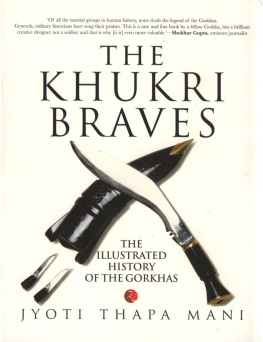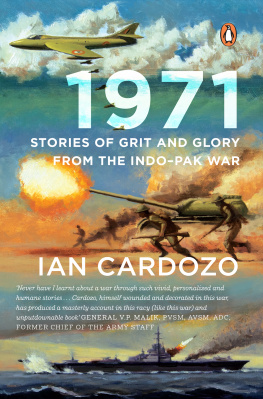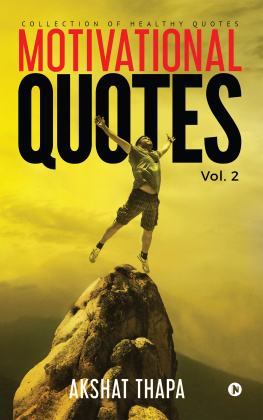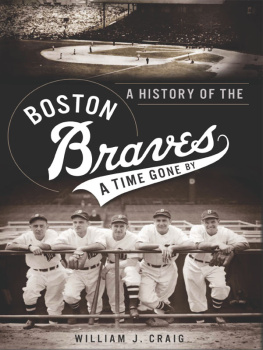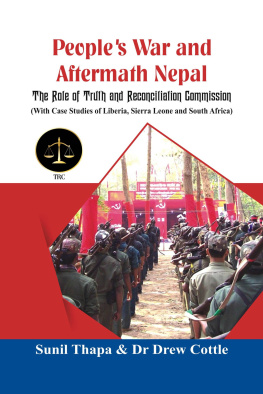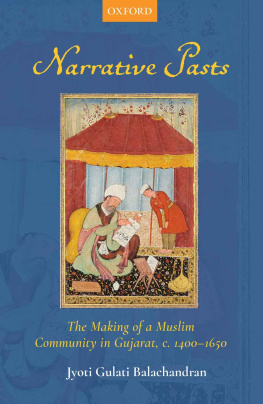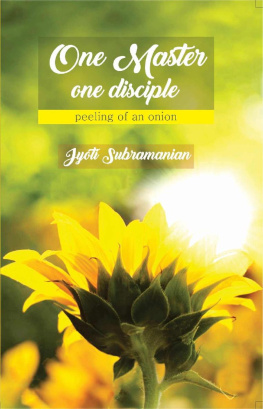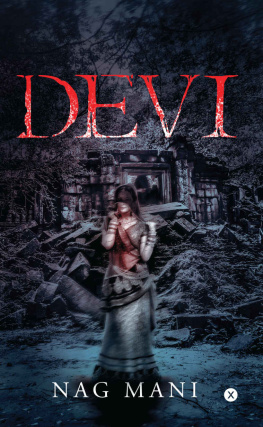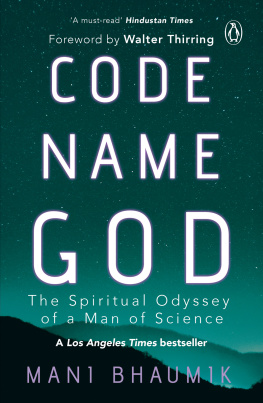THE
KHUKRI
BRAVES
Jai Mahakali, Ayo Gorkhali!
(Hail Goddess Mahakali, here come the Gorkhas)
The war cry of the Gorkhas
For 300 years, the Gorkhas of Nepal and India have had a continuous, unique heritage of being celebrated martial defenders with an intact ethnic composition. The Gorkha soldiers were forged through the fires of history to become what they are today.
The first-ever illustrated history of the Gorkhas, The Khukri Braves portrays the rich history and culture of this gallant community in all its vibrancy. Painstakingly researched and evocatively written by Jyoti Thapa Mani, one of Indias best newspaper and magazine designers, this is the first such book by a person of Gorkhali origin.
An exhaustive, vivid compilation of historical research comprising previously unknown anecdotes, surprising facts and breathtakingly beautiful images, it provides a vivid account of the travails and triumphs of the Gorkha community. This is a must-read to understand the heritage of a community heralded for their courage.

THE
KHUKRI
BRAVES

IMAGE: JYOTITHAPA MANI

Published by
Rupa Publications India Pvt. Ltd 2015
7/16, Ansari Road, Daryaganj
New Delhi 110002
Copyright Jyoti Thapa Mani 2015
Photograph/illustrations copyright: Jyoti Thapa Mani JTM); First Gorkha Rifles (1 GR); Nepal Tourism Board (NTB
Designed by Jyoti Thapa Mani
The views and opinions expressed in this book are the authors own and the facts are as reported by her which have been verified to the extent possible, and the publishers are not in any way liable for the same.
All rights reserved.
No part of this publication may be reproduced, transmitted, or stored in a retrieval system, in any form or by any means, electronic, mechanical, photocopying, recording or otherwise, without the prior permission of the publisher.
ISBN: 978-81-291-3685-5
First impression 2015
10 9 8 7 6 5 4 3 2 1
The moral right of the author has been asserted.
This book is sold subject to the condition that it shall not, by way of trade or otherwise, be lent, resold, hired out, or otherwise circulated, without the publishers prior consent, in any form of binding or cover other than that in which it is published.
TO MY LATE FATHER PRITAM SINGH THAPA

IMAGE: JYOTITHAPA MANI
VICTORY DAY, ABBOTABAD. 30 JUNE 1945
The poem was written by fellow comrades in memory of Naik Harka Bahadur, 10 GR, a muleteer in the Chindits operation in Burma. In late March 1943, Column 8 to which Harka was posted received call for dispersal. On 15 May 1943, down with malaria and exhaustion, Harka was just a little away from the final destination at Chindwin River, when he breathed his last.
The poem captures the spirit of the end of WWII and the dilemma of his young wife waiting for him.
At last they came back home,
The war and the waiting was over
The military band led the returning soldiers into the cantonment,
Ayo GorkhaliBir Gorkhali
Dushman lai mari kani Ayo Gorkhali
They came back from Burma,
They came back from Italy, Germany and France.
They came back victorious from the Great War.
They were tired, haggard and wounded but still upright and smiling,
They had made it home,
They had won the war.
Ayo GorkhaliBir Gorkhali
Dushman lai mari kani Ayo Gorkhali
Joyous populace of Abbotabad
Greeted the marching veterans to thunderous applause.
And no less was the cheer from their waiting families.
To the victorious army.
To the victorious Gorkha soldier,
Pathans and Gorkhas danced the same dance, sang the same song
Ayo GorkhaliBir Gorkhali
Dushman lai mari kani Ayo Gorkhali
But some were not so lucky, there were many who didnt come home;
And there were wives in the crowd whose sobs were muffled in the cheers,
Whose misty eyes were still searching over the heads of the surging crowd.
Still hoping and still praying
Hope of the helpless
Anxious, worried and distressed hearts made more painful by the occasion
Of festive reunions.
For Harke Magar will not come.
So go back Kanchhigo back to Deurali Khola and take your little ones too,
They who look vacantly up to you
Holding your trembling hands on either side
And know not what to do.
The Band is loud
The cheering is louder;
The crowd is in the parade
Flowers are in the air
Ayo GorkhaliBir Gorkhali
Dushman lai mari kani Ayo Gorkhali
Timidly, she tugs the sleeves
Of a marching Subedar
Where is Harke Kanchha?
Why isnt he here with you?
The soldier turns and looks,
Into her worried eyes and quivering lips
His heart is bleeding.
Oh sister, didnt they tell you,
Harke was awarded the OBI.
Braver than the bravest,
He died a heros death while fighting the enemy
In the battlefield of Sangro,
You will receive his medal soon.
His zest for life was amazing
And everyone loved him dearly.
But no longer will he play the Madal,
No more will he dance the jhamre,
No. He is not coming back home.
We buried him there with those
Whom he had vanquished,
In the battlefield of Sangro.
So go back Kanchhigo back home;
Go back to Deurali Khola.
The parade went on
In gaiety and fun
Followed by guns
Followed by salutes
Followed by dancing, young and old.
Aba ta jam Kanchhi gahara
Baato chha ukalooralo

IMAGE: JYOTITHAPA MANI
CONTENTS

IMAGE: JYOTITHAPA MANI
FOREWORD
MAJOR GENERAL P.C.S. KHATI (RETD), VIR CHAKRA, SENA MEDAL, COLONEL OF THE REGIMENT (2004-2009), 1ST GORKHA RIFLES (THE MALAUN REGIMENT)

This book is an enthusiastic celebration of the travails and triumphs of the Gorkhas, renowned for their unending patriotism and valour. It portrays the intensity of an emotional, personal and deep sense of attachment to the land from where their ancestors have migrated. Jyoti Thapa Mani and her sensitivity towards the Gorkhas has given a new insight to the book.
It explores both the military exploits and everyday life of the Gorkhas. The culture, tradition and rituals of the community are skilfully portrayed thereby providing the readers a glimpse into all the aspects of their life.

